Every 29 hours, one violent death due to LGBTphobia is registered in Brazil.¹
¹2021 Report - Gay Group of Bahia.
The people who are
part of the
LGBTQIA+ community
have 6x more
chance of
committing suicide,
and 62.5% of those
have already thought about
taking their own
life.²
²Data from the American scientific
journal Pediatrics.
LGBTphobia:
Do you know
what it means?
The suffix “phobia” is an exaggerated feeling of aversion, intolerance or rejection. LGBTphobia is prejudice, discrimination and hatred feelings against all people in the LGBTQIA+ community.
But do you know
who is part
of the community
LGBTQIA+?
L_lesbians: women who are attracted to other women. Lesbophobia is the term used when a person discriminates against lesbian women.
G_gays: men who are attracted to other men. Prejudice against gay men is called homophobia.
B_bisexual: people who are attracted to people of any sex or gender. When discriminated against, these people are victims of biphobia.
T_transgender: the letter T is related to gender identity, that is, how a person feels about their own gender. Trans people are those who do not identify with the gender assigned at birth. Transvestite is the identity adopted by people who were born with the male sex, but who have female identities. Thus, the pronouns used are SHE/HER. In the USA transvestite is considered a pejorative term, so, this word has been recently replaced by crossdresser. Transphobia is the name given to any form of discrimination or violence against people from this group.
Q_queer: umbrella term for gender minorities, gender identity and gender expression, that is, those who do not fit the heteronormative standard or are not cisgender people.
I_intersex: these are people who are born with biological characteristics that do not fit the typical male or female characteristics, such as chromosomal, hormonal or phenotypic factors, in addition to internal or external factors. In the past, they were known as hermaphrodites. However, currently, this term is pejorative and hasn’t been used anymore.
A_asexuals: people who do not feel sexual attraction to any gender.
+_plus: the acronym ends with the “+ ” sign, and it means it does not end. Inclusion is one of the movement’s agenda, and the “+ ” includes everyone.
Expressions
or words that
offend, reinforce
LGBTphobia and should
be eliminated from the
vocabulary.
We, as a society, must ensure that all people can live, be and love freely, but, unfortunately, this hasn’t been a reality yet. Therefore, it is not right to say that only relationships between people of opposite genders (man and woman) are correct and it is also not right to reject any orientation other than heterosexual.
Within this context, seemingly harmless jokes and comments are said all the time, causing anguish and suffering to the LGBTQIA+ community.
Check out some expressions and words that can hurt other people, even with no intention.
Homosexuality
Unfortunately, until 1990 the World Health Organization (WHO) considered homosexuality a disease. As well as transsexuality, as this word was removed from the registry of mental disorders only in 2019.
No sexual orientation should be seen as a disease, anomaly or disorder. There is no cure for something that is not a disease.
Dyke
Pejorative term to define a homosexual woman.
The correct one is LESBIAN.
Transvestite
In some countries transvestite is a pejorative term. So, this word has been recently replaced by crossdresser.
Instead, use the term
CROSSDRESSER.
To be
who
you are
must
never
be a
problem.
Liz Camargo
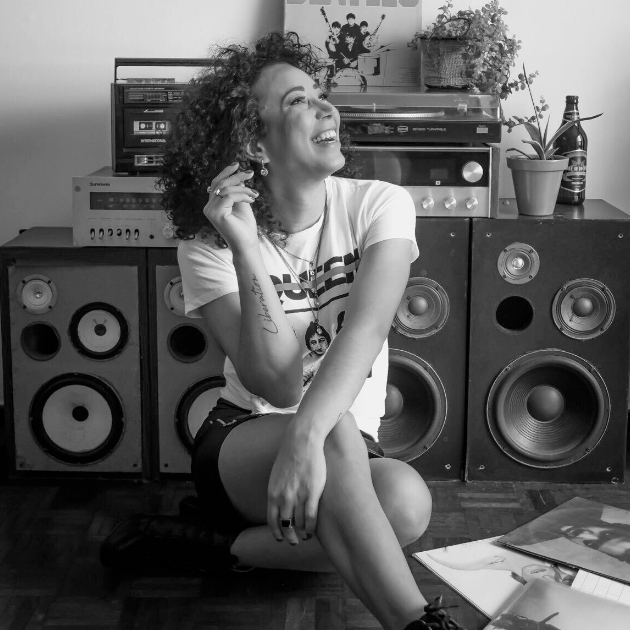
Sexual choice
A person does not choose their sexuality, and that is exactly what the word “choice” refers to. When we talk about sexuality, we are addressing something that is natural and individual.
Therefore, the correct term
is SEXUAL ORIENTATION.
Sex change surgery
Popular but inadequate term to refer to the procedure by which a person’s sexual/genital characteristics are changed with the aim of having a body suitable to their gender identity.
Instead, use
GENDER-AFFIRMING SURGERY
Attention: asking if the person has been through surgery is impolite, after all, this is intimate information that only concerns them. Remember that it is not a surgery that will confirm people’s gender identity. There are trans people who do not undergo this procedure, whether by choice or lack of resources, and they must be respected in the same way.
“You don’t look gay/trans/lesbian!”
Prejudiced phrase that generalizes the “personification” of gay, trans or lesbian people. Sexual orientation is not necessarily linked to people’s characteristics.
“But what is your real name?” or “What is your dead name?”
Trans people who choose to change their name want to leave their old name behind. As the expression itself says, it is a “dead name”. Refer to the person by their given name or social name and do not ask for their registered name.
“I have nothing against gays, but there’s no need to kiss in public.”
Kissing is a way of showing affection and love, regardless of sexuality. Let’s respect all forms of love!
“You don’t need to tell everyone that you’re homosexual.”
Repressing is also a form of discrimination. The decision to talk or not about sexual orientation is up to the person.
“Do you want to become a man now?”
Comment that refers to lesbian women and is generally made by people who believe that women need to follow a physical and behavioral standard determined by common sense. It is worth remembering that everyone is free to communicate, be and dress the way they want.
“She hasn’t found her man yet!”
This statement is generally directed at lesbian women. The tone of the message is arrogant, as it assumes that the sexual orientation of homosexual people is the result of bad heterosexual experiences. And the reasoning is wrong.
“Who is the man
or the woman in the relationship?”
There is no woman in a same-sex relationship between men, just as there is no man in a same-sex relationship between women. The question is disrespectful and reinforces ideas of a heteronormative society.
“You will never be a mother.”
The expression implies that a child can only be the result of a heterosexual relationship. Yes, a lesbian or trans woman can be a mother! Motherhood brings countless possibilities, such as adoption, for example.
“I also want to be part of this relationship.”
This phrase is generally said by heterosexual men, and comes full of sexism, reinforcing the culture of the female body as an object.
“You don’t have to be effeminate.”
The word “effeminate”, when used in a pejorative way, can be offensive to both gay men and gay and straight women. In the context above, for example, the tone of the message suggests that gay men and women, gay and heterosexual, have inferior qualities compared to straight men..
“When did you become gay or lesbian?”
“Who did you learn to be gay or lesbian from?”.
Sexual orientation is not an option. No one learns or decides to be gay or lesbian. The world is diverse, people are diverse and all ways of loving, existing and living are valid.
“You will never be a father.”
In the same way that lesbians can be mothers, gay men can be fathers too. When it comes to a trans man, there is also the possibility of pregnancy, as he may still have the female reproductive system.
“I always wanted to have an accessory.”
The speech validates the stereotype created by society that gay men accompany straight women in their daily routine as an accessory and do everything for them.
“I’m not prejudiced, I even have some gay/lesbian friends.”
Having LGBTQIA+ friends does not determine whether or not a person is prejudiced and whether or not they respect the community.
“That’s a man’s job.”
There is no work that is exclusive to any genre. If this idea still persists today, it is due to the historical construction of our society, in which gay women and men are seen as fragile beings and less capable of conducting activities that require strength and logical reasoning. This sexist comment reinforces straight men as superior beings to gay men and women.
“They’re bisexual because
they can’t decide what they want.”
Being bisexual is not synonymous with being in doubt about sexuality. Anyone who is bisexual feels emotional and/or sexual attraction to more than one gender, as mentioned at the beginning of the text.
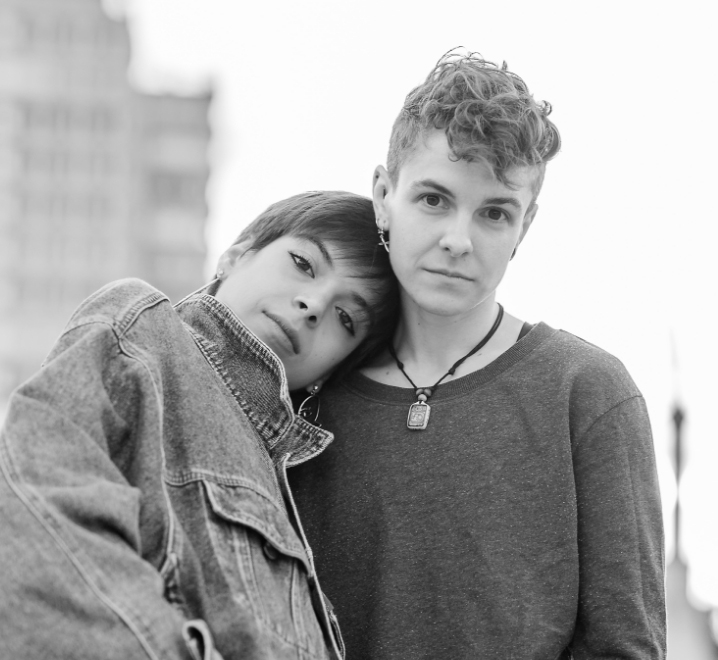
Respect
above
all else!
How can we have
a positioning to
the anti-LGBTphobia cause?
We don’t need to be part of the LGBTQIA+ community to be against LGBTphobia. This is a cause for all people. Remember, love has no labels and is universal.
If today the topic is still frequently discussed, it is because prejudice persists and continues to kill thousands of LGBTQIA+ people. More trans and crossdresser people are killed in Brazil than any other place in the world.
And how can you be part of this fight, whether or not you are part of the LGBTQIA+ community?
Support
It is especially important to offer an environment in which people feel safe, welcomed and free to be who they are, whether within the company, among friends or at home, or at school or college. Exclusion often begins at home.
37%
of Brazilians say
they wouldn’t accept
a homosexual
son or daughter
Be a support network
If you have LGBTQIA+ children, look for ways to support them. Give your child openness and space to demonstrate who they are and be happy, free from judgement. Let your home be the place where they can find love and affection.
If you have friends whose family doesn’t yet know about their sexual orientation, don’t judge them. Offer support and be available and willing to understand what the person wants to express.
All people have the right to live, to love and to be loved.
Are you from the LGBTQIA+ community and have friends in difficult situations?
Share your experience and learnings. Your pride can be the inspiration that person seeks to feel like themselves.
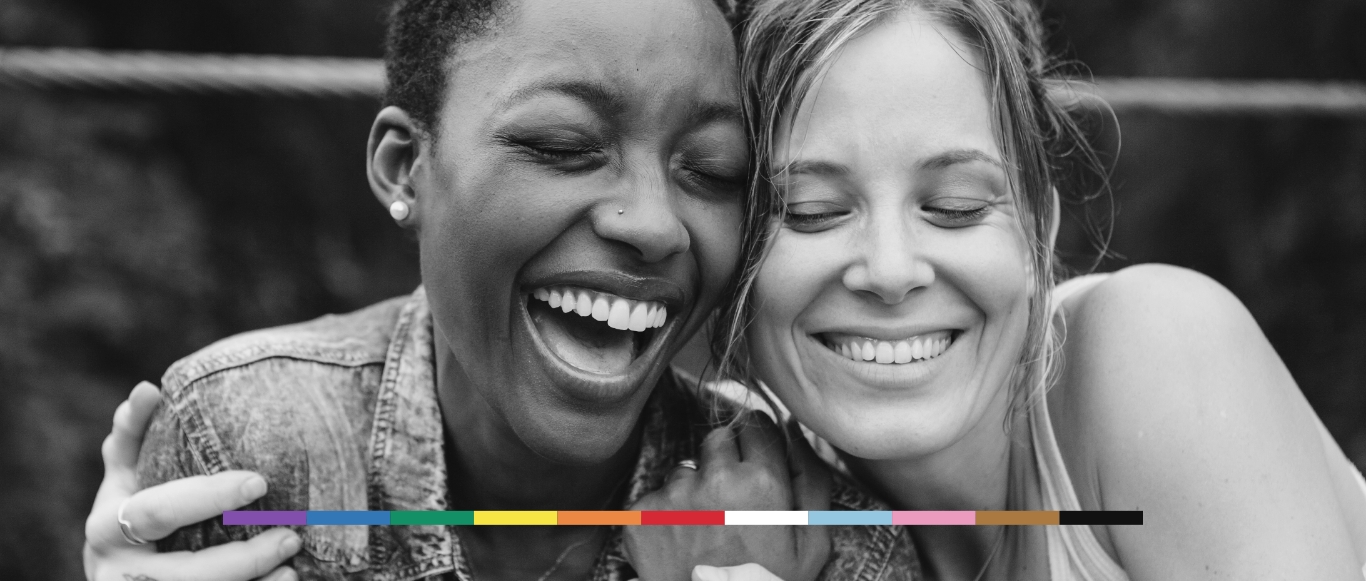
#Pride
inspire
Pride
Show your opinion. Search for information and share knowledge.
Information is one of the weapons against hate and prejudice. Try to find out more about the LGBTQIA+ fight and mobilize those who are part of your community.
Remember!
Have you noticed any prejudiced comments during a conversation with friends?
There are ways to position yourself. If someone is telling a joke about it, evaluate the best posture when faced with the situation. It is possible to explain why a certain phrase is not funny, for example.

Remember!
Do some people around you not understand LGBTQIA+ relationships?
Try to explain a little about the context and that we are not the same. Respecting people and their differences is fundamental to having a better world.
Remember!
At work, are there frequent prejudiced jokes and comments?
Do not accept this behavior and try to understand if the company offers any anti-LGBTphobia training. If the company does not have such training, try to address these topics with your leadership. Some colleagues may be part of the LGBTQIA+ community and feel unsafe in a non-inclusive environment.
Try to understand whether the company has initiatives to hire LGBTQIA+ people, especially trans and crossdressers.
Unfortunately, formal employment for this public is still an exception.
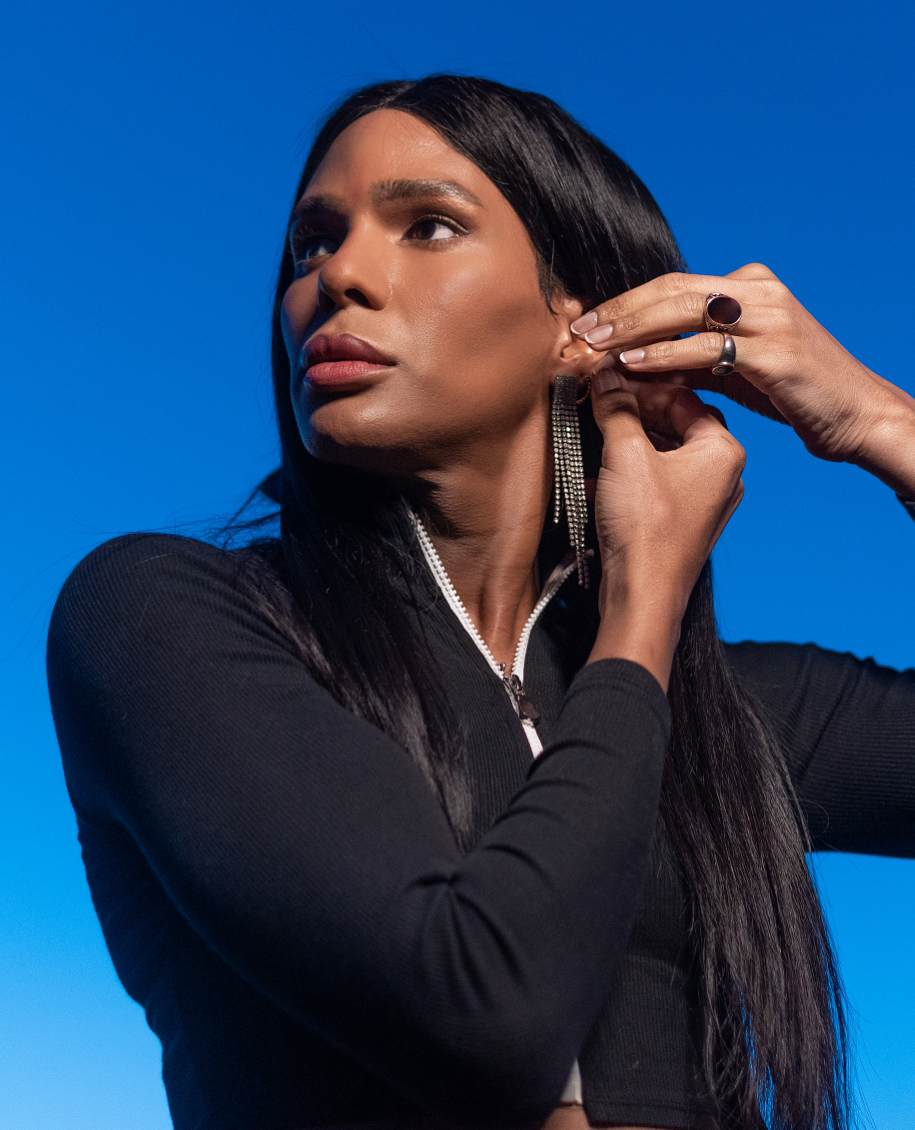
90% of the transsexual population
have prostitution
as their source of income.
Support representativeness
Whether in culture or society, representativeness matters in all spheres. Value and share the work of people who belong to the LGBTQIA+ community. If you are a communications professional, be an ally of stereotype-free, representative and inclusive communication.
It is important that the
people feel
represented
in places where before
seemed impossible
to be.
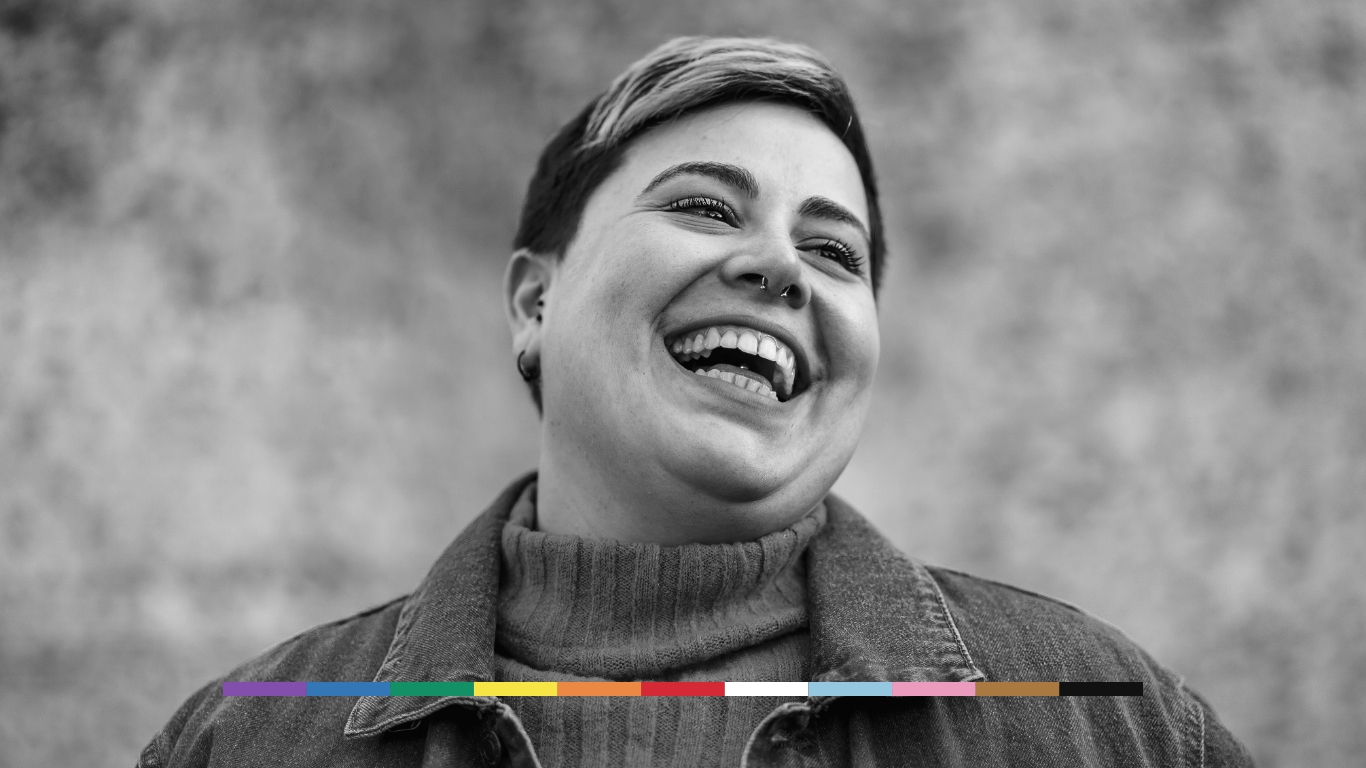
Have empathy
Evaluate your own concepts and try to pay attention to others. Be open to knowledge. If someone mentions that your comment was prejudiced, try to understand and learn instead of disagreeing or defending yourself.
Dialogue between people is fundamental and generates an exchange of information and experiences between those who live the situation and those who can be an ally in the cause.
Report it!
LGBTphobia is a crime! In 2019, the Federal Supreme Court determined that discrimination against LGBTQIA+ people was included in the crimes provided for in Law No. 7,716/1989 (Racism Law).
Furthermore, it classified LGBTphobia as intentional homicide (when there is the intention to kill), a circumstance that qualifies it, as it constitutes a base motive (one considered immoral or shameful), with a prison sentence ranging from 12 to 30 years.
How can you
help a victim
of LGBTphobia:
Important!
Pay attention and believe what the person will tell you.
Accept the report and avoid questions and comments that may blame the victim or make light of the situation, such as “What did you do?” or “Was it really like that?” Practice empathy and be part of a support network.
Important!
Instruct and, if possible, accompany the victim to a police station to file a police report.
There are also support institutions for victims of LGBTphobia. To report LGBTphobia, there are some ways:
File a police report at a police station or online
Use the Human Rights Hotline – Dial 100
Register the complaint at new.safernet.org.br/denuncie
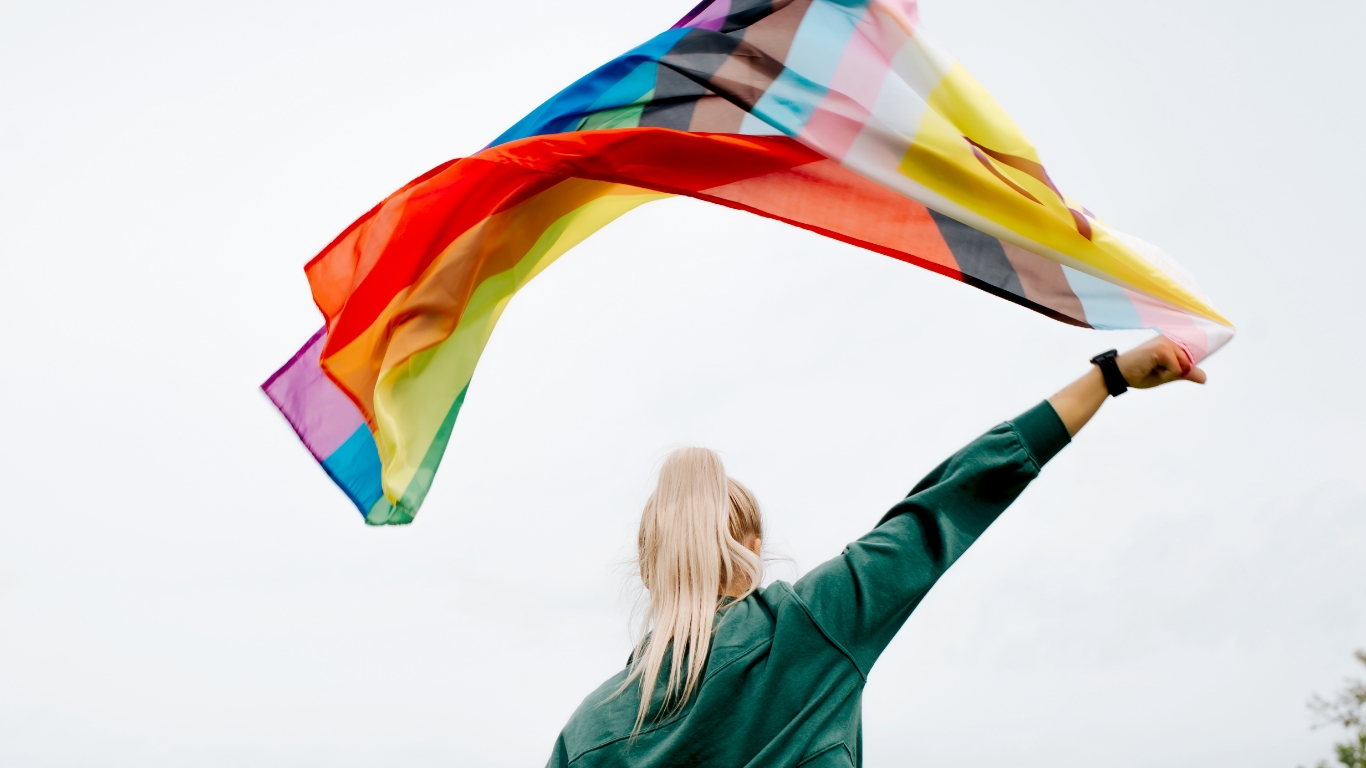
LGBTphobia is a crime!
We, at Boticário Group, do not tolerate any type of prejudice. Therefore, if you are our employee, partner or supplier and have ever witnessed or suffered any type of prejudice and discrimination for being part of the LGBTQIA+ community, use our Ombudsman channels to make your report.
Contact us
0800 706 2000
or access the portal
compliancegrupoboticario.com.br
24 hours a day | 7 days a week | Identified or anonymous
